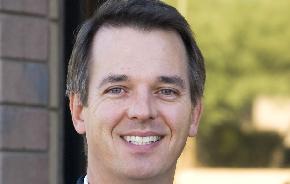Childcare is one area of spending that Bruce Karpas is banking on consumers not cutting corners. The chairman and CEO of Greenwood Village, CO-based Crème de la Crème operates 20 upscale childcare centers across the country and plans to increase that number to 30 units by the end of next year. Crème’s facilities, which average 20,000 sf, are mainly on or near shopping-center sites – 25% of them are located in office parks. The company currently has six schools in the Atlanta area, five schools in the Dallas area, four in the Chicago area, and one each in or near the following cities: Philadelphia, Denver, Cleveland, Washington, and Kansas City. Karpas recently spoke with GlobeSt.com about what his company looks for when expanding.
GlobeSt.com: What types of shopping centers do you prefer when looking for space?
Karpas: We really look at the neighborhood. Are there the requisite number of families that fit our target? We look for a combined income of $100,000 with children under five years old. As long as they’ve got that magic number in a seven-mile radius, it works for us. Having said that, we build a very upscale facility, so we want to be in a shopping center that fits the image. We don’t want a downscale shopping center.
We need playground space, so we can’t be inline. We can’t be crammed in between a Gap and a Bed Bath & Beyond. Other than the actual physical location, we tend to be an outparcel. We’re not attached. It works for landlords too. We don’t have to be right in the front by the street. And the economy is actually helping us a little bit because we’re seeing a little less pressure competing with some of the major big-box retailers. But we’re not going to beat out Kohl’s for an anchor position.
GlobeSt.com: Do you often take spaces vacated by other retailers and are there certain shells that work better?
Karpas: My real estate head would love if we were able to retrofit a building because it would open up a lot of spaces we can’t do. The answer so far is “no.” The biggest issue is plumbing. Every one of our rooms has a bathroom for the kids and a sink for washing hands. Most buildings don’t have that. A medical-office building would probably have that. We could do it if someone pretended there was no building and just sold us the land because we’re just going to do it from scratch and raise the building.
GlobeSt.com: Have retailers cutting back on their store-opening programs made room for you?
Karpas: There are certain markets where I had never even gone because I knew we were priced out. Some of the markets that were in bubbles we couldn’t touch, and now we’ve got one up in Scottsdale (AZ) and one in Chandler (AZ) that we are looking at. But we are definitely seeing less competition from other sources, whereas before if we had met the price, we still couldn’t have it.
GlobeSt.com: Has the downturn hurt your business at all?
Karpas: The wonderful thing about being in the education business is that parents don’t skim of their children’s education unless they have to. Recession-proof is a little bit of an overstatement, but we’re not hit the way other luxury items are. When it comes to parents and their children, other than the mortgage, education comes first. The benefit of the economy is that construction costs are significantly down. We’re seeing a 10% to 15% savings on construction costs.
GlobeSt.com: How do you finance your growth?
Karpas: The reason we’ve been able to grow and grow now more aggressively is the way we finance. The easiest way it to do build to suits. In the past, we didn’t have the credit. We have Kimco doing a built to suit for us in Bridgewater, NJ. We now have the scale, balance sheet, credit and momentum, so developers are doing build to suits for us.
We also finance them and build them. But pretty soon after we open, we do a sale leaseback with some major REITs like Spirit Finance Corp. and others. We’re not so big that we can justify the best cap rate in the world. But we add to the mix of returns. They’re looking to diversify their portfolio in terms of use, and they can mix up their cap rates.
GlobeSt.com: Why did you decide to enter shopping centers in the first place?
Karpas: The reason why they’re beneficial for us is because we can share parking, and it cuts down on our land requirement. The infrastructure is in place. And we like the idea that they are generating traffic for us.
You can’t always find the perfect site on a stand-alone basis. At the beginning, together with the developer, we can tailor the right size. If I’m driving up and down the street looking for my three acres, it’s very tough to find land that’s left over that’s going to fit our needs.





 Copyright © 2024 ALM Global, LLC. All Rights Reserved.
Copyright © 2024 ALM Global, LLC. All Rights Reserved.











